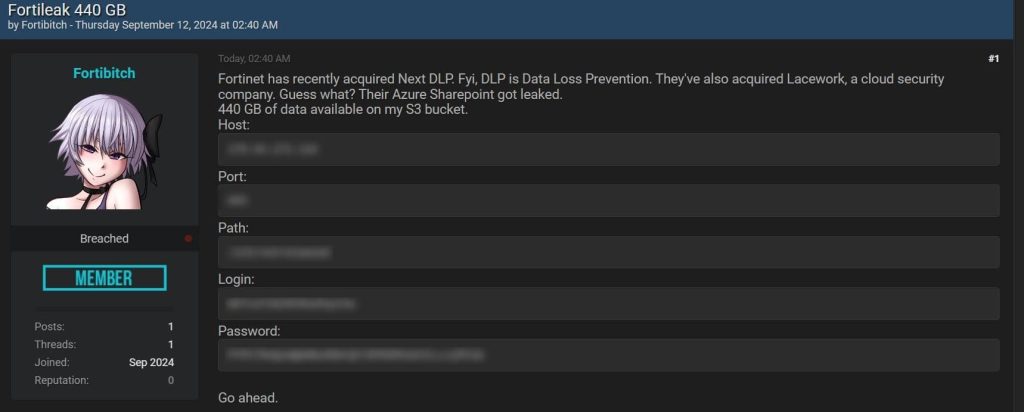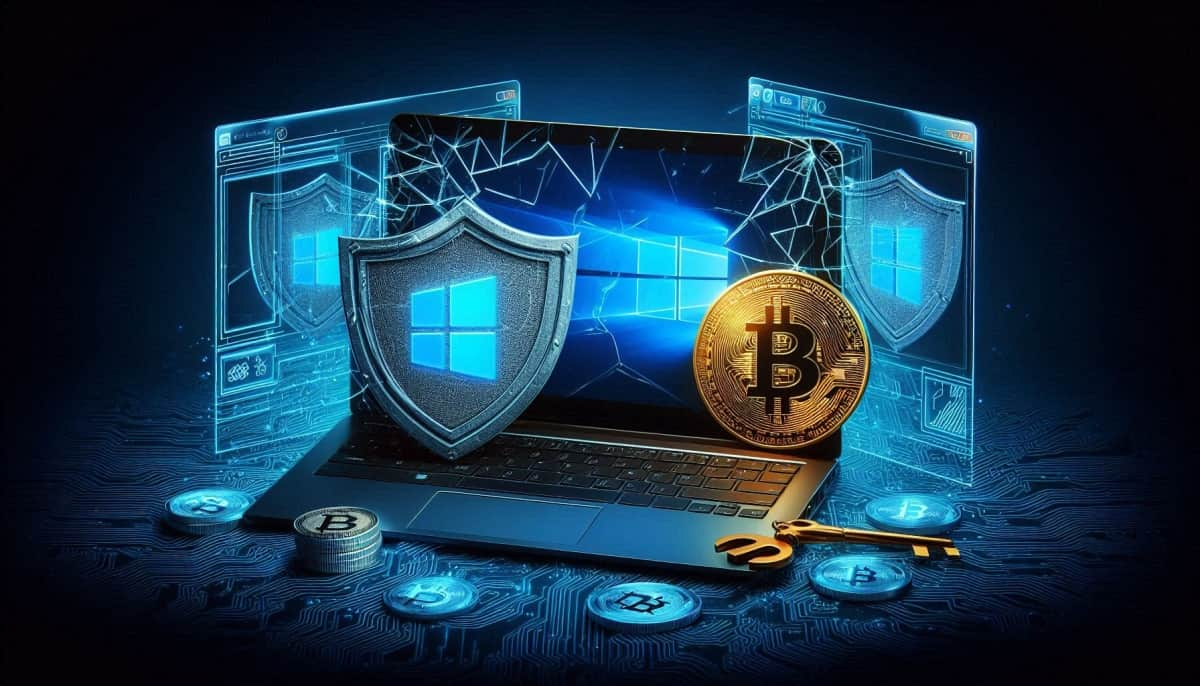BOOK THIS SPACE FOR AD
ARTICLE ADA hacker claims to have stolen 440 GB of data from cybersecurity firm Fortinet, exploiting an Azure SharePoint vulnerability. The breach, dubbed “Fortileak,” was revealed on a forum with access credentials shared online.
A hacker using the alias “Fortibitch” has claimed responsibility for leaking 440 GB of data belonging to Fortinet, a prominent cybersecurity firm based in Sunnyvale, California. The hacker stated that the stolen data is now accessible for download via an Amazon S3 bucket, with details of the breach and access credentials shared on the popular underground forum, Breach Forum.
The Breach: Fortileak
Dubbed Fortileak by the hacker, the breach allegedly originates from an exposure in Fortinet’s Azure SharePoint instance. In the forum post, the hacker pointed out recent acquisitions by Fortinet, including the Data Loss Prevention (DLP) firm Next DLP and the cloud security company Lacework. They then claimed that Fortinet’s Azure SharePoint had been compromised, allowing for the extraction of the substantial data cache.
The full scope of the compromised data remains unclear, though the hacker emphasized that the breach involves Fortinet’s cloud infrastructure. The hacker provided the following credentials for accessing the alleged stolen data:
Ransom Demands and Negotiation Breakdown
In a further twist, the hacker claimed that Fortinet’s CEO, Ken Xie, walked away from ransom negotiations. In the forum post, the hacker ridiculed Xie, alleging that the CEO refused to engage, stating that he “would rather eat some p**p than pay ransom.” The hacker also questioned why Fortinet had not filed an SEC 8-K form (PDF)—a document required by public companies to disclose major incidents.
The post also contained a mix of taunts and shout-outs to other individuals or groups, which seemed to further underline the hacker’s brash attitude toward the attack and its aftermath.
Fortinet’s Response
Hackread.com reached out to Fortinet for an official comment on the breach. A spokesperson for the company confirmed that an unauthorized individual had gained access to a limited number of files stored on a third-party cloud-based shared file drive. These files included data related to a “small” subset of Fortinet customers.
In their statement to Hackread.com, Fortinet reassured stakeholders that there has been no indication of any malicious activity affecting its customers. They emphasized that the company’s operations, products, and services have not been impacted by the breach. Fortinet stated that they have already communicated directly with the affected customers and are continuing to monitor the situation closely.
“An individual gained unauthorized access to a limited number of files stored on Fortinet’s instance of a third-party cloud-based shared file drive, which included limited data related to a small number of Fortinet customers, and we have communicated directly with customers as appropriate. To-date there is no indication that this incident has resulted in malicious activity affecting any customers. Fortinet’s operations, products, and services have not been impacted.”
Fortinet SpokespersonThis is not the first time Fortinet has faced a cybersecurity incident. Last year, Chinese hackers were reported to be exploiting a zero-day vulnerability in the company’s products. In another instance, hackers were found exploiting a vulnerability in FortiOS, the operating system for Fortinet’s security appliances, to compromise organizations and customers.
Nevertheless, for now, the full extent of the breach remains under investigation, and it is unclear whether the alleged stolen data will be used maliciously or if the ransom negotiations will have any further developments. As more information emerges, both customers and cybersecurity professionals will be watching closely to assess the impact of this incident.
UPDATE – 23:48 Thursday, 12 September 2024 (GMT)
Fortinet has now published a blog post addressing the incident, which only affected less than 0.3% of its customers. The company assured that there was no evidence of malicious activity or any impact on its operations, products, or services, and no ransomware was involved.
The company says it acted swiftly by investigating the breach, terminating the unauthorized access, and notifying law enforcement and cybersecurity agencies. Fortinet has since enhanced its internal security measures, including improved account monitoring and threat detection, to prevent future incidents. Fortinet emphasized that the breach is unlikely to have a material impact on its financial performance.
.png)
















 Bengali (Bangladesh) ·
Bengali (Bangladesh) ·  English (United States) ·
English (United States) ·